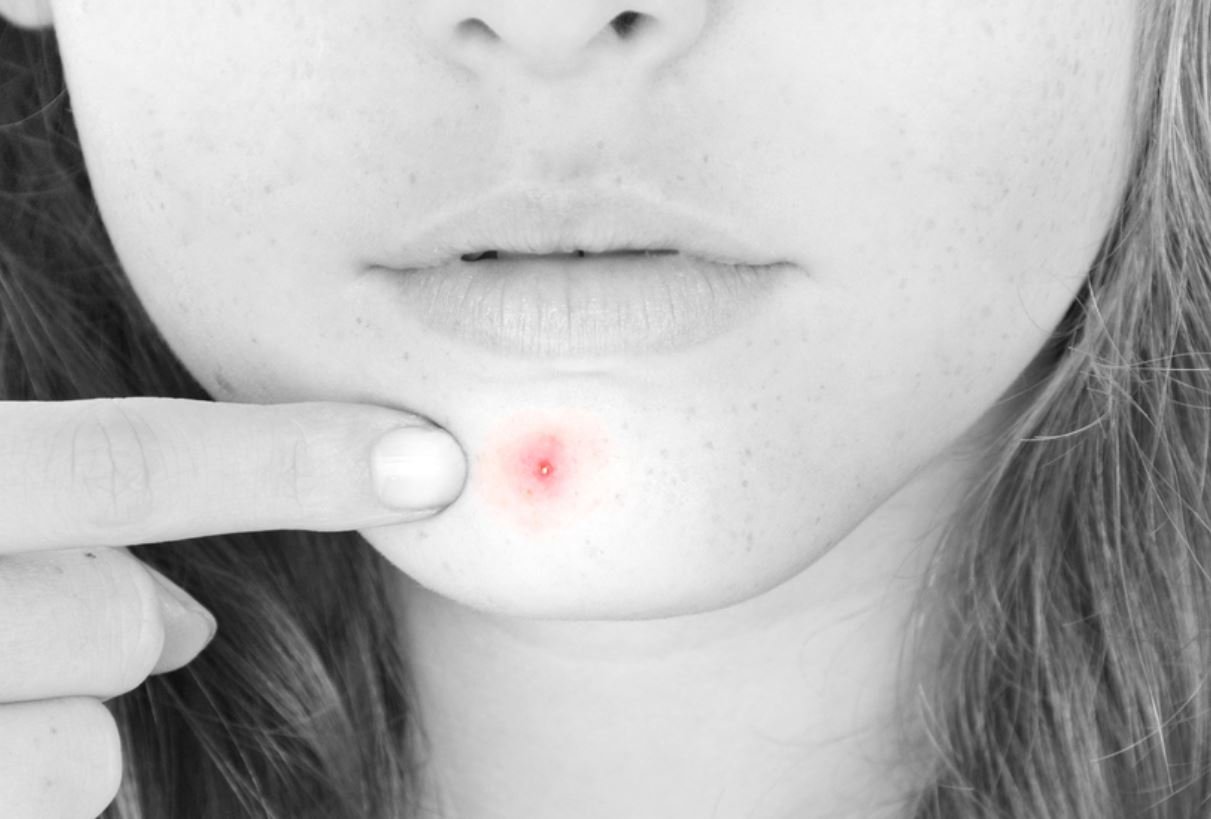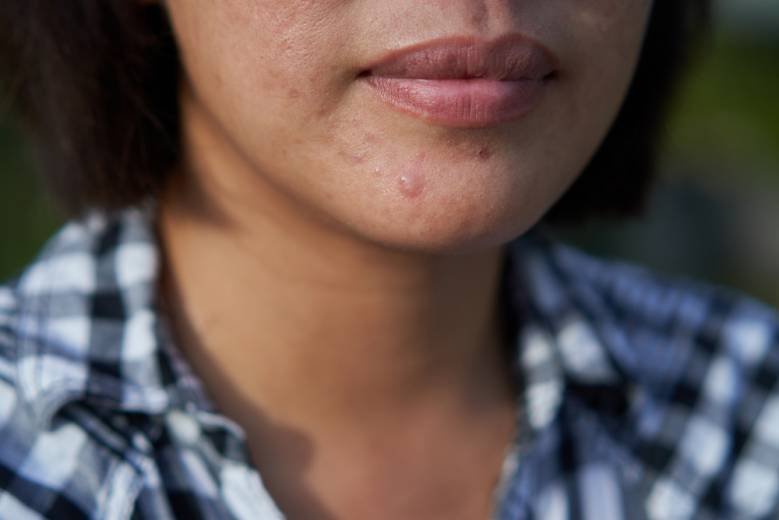

Most people think that acne is all about having pimples on the face but a person with acne also gets:

Acne is a persistent and common problem that cuts across all ages. A recent study titled “The prevalence of acne in adults 20 years and older,” that was published in the journal of the American Academy of Dermatology, shows that a good number of adults continue to get acne even beyond their teen years. The study also discovered that women tend to experience this skin problem at higher rates than men in all age groups. This is due to the role played by hormones in acne development. The problem, however, does reduce after teenage years and post-adolescent acne is moderate or mild.
Lindsey Blondin, a lead esthetician, says that the skin is the largest organ the body uses to rid itself of illness, toxins, and stresses. She encourages face mapping which is a method of using acne location to inform on treatment and prevention.
Dr. Doris Day, a certified dermatologist, says that chin breakouts are mostly caused by hormonal patterns. “Sometimes it’s women who stopped taking hormonal contraceptives, or it sometimes develops after the teen years as an adult form of acne.”
Hormonal imbalance could be the reason especially if yours appears during menopause, pregnancy, periods, menopause or puberty. This is the reason why pimples around your chin occur a few days before your periods and disappear after they end.
Food allergies or poor diet could also be the reason your chin acne keeps reappearing. Pimples on the chin due to diet and food allergies can be associated with problems with the small intestine.
This means that your body is not able to get rid of toxins. When these toxins accumulate they cause pimples around your chin, neck and jaw areas.
Poor hygiene can cause chin acne. It could also lead to the spread from one skin area to another. Avoid:
Other causes include:

There are two types of chin acne: hormonal and cyst.
This is caused by an imbalance in the levels of hormones like testosterone, estrogen, and androgen. They naturally fluctuate through a monthly cycle and when there is an increase or decrease, the skin produces more oil. Overproduction of the oils causes congestion around the chin which leads to acne. These breakouts occur both in men and women of all ages.
It appears in the form of whiteheads, blackheads, small pimples or cysts.
Hormone balancing treatments are needed. Use of generic products may not work since the cause of acne is systemic, not external.
This is plant-based hormones that occur naturally. They treat hormonal acne without having to get into the bloodstream. A safe way to treat chin zits caused by hormones is by incorporating phytoestrogens into skincare regimens. The phytoestrogens regulate oil production, balance the skin and eliminate bacteria. They are derived from reproductive parts of plants like grape seeds, red clover, soybeans, flaxseed, and several berries and nuts.
To take care of your skin, use natural organic products (especially those with phytoestrogens). All-natural ingredients will not trigger infections, are not harmful and do not cause irritations. They also contain antioxidants and anti-inflammatory benefits.
This is large, red painful breakouts in the skin. It may linger for years and therefore needs to be treated. If left untreated, it could affect large areas of the skin leaving permanent scars.
Cystic acne happens when a bacterial infection caused by clogged skin, gets deep into the skin. This creates a tender red bump full of pus. The bump is itchy and if it bursts can lead to more breakouts caused by the spread of infection.
Hormones called androgens play a huge part in causing cystic acne. It’s also hereditary in some cases.
Here are some of the ways to treat it
Exfoliate every day to rid the skin of old cells and eliminate clogging of bacteria
Probiotics are the good bacteria, which help in digestion and promote the health of your gut but can also benefit the skin. Roshini Raj, a certified dermatologist explains that “we’ve always understood that our digestive health can impact our entire body—everything from sleep and energy to overall body inflammation and immunity—and especially our skin.”
There has to be a balance between the good and bad bacteria on your skin. Skincare products infused with probiotics help balance the skin’s flora.
“When you wash your face, especially with harsh cleansers and soaps, you are removing both the good and bad bacteria from your skin,” Dr. Raj says. “Any disruptions to the balance of bacteria—too much bad—leaves skin susceptible to skin irritations such as dryness, inflammation, and infection.”
Probiotics can also be used orally to help regulate levels of bacteria throughout the body.
The myth that acne runs its course over time is not true. Failure to treat it leads to problems like dark spots and permanent scars appearing on the skin as the acne clears. Constant acne also lowers one’s self-esteem and could lead to depression.